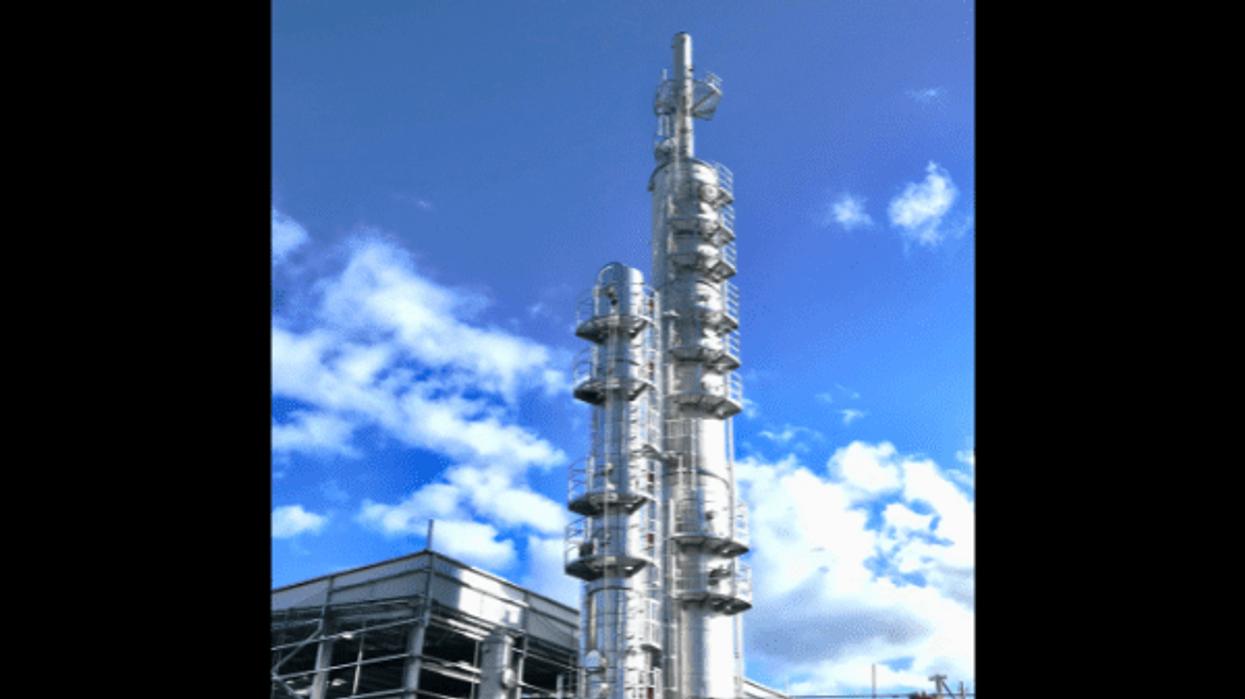TATA Chemicals Europe (TCE) on Friday (24) officially opened the UK’s first industrial scale carbon capture and usage plant, setting up a key milestone in the race to meet the country’s net-zero targets.
The project worth £20 million has been completed by the Northwich-based company, one of Europe’s leading producers of sodium carbonate, salt and sodium bicarbonate.
The plant captures 40,000 tonnes of carbon dioxide each year - the equivalent to taking over 20,000 cars off the roads and reduces TCE’s carbon emissions by more than 10 per cent. The project will help unlock the future of carbon capture in the UK as it demonstrates the viability of the technology to remove carbon dioxide from power plant emissions and use it in high-end manufacturing applications.
In a world’s first, carbon dioxide captured from energy generation emissions is being purified to food and pharmaceutical grade and used as a raw material in the manufacture of sodium bicarbonate which will be known as Ecokarb®. This unique and innovative process is patented in the UK with further patents pending in key territories around the world.
Ecokarb® will be exported to over 60 countries around the world, generating tens of millions of export revenue every year. Much of the sodium bicarbonate exported will be used in haemodialysis to treat people living with kidney disease.
The carbon capture plant, which was supported with a £4.2 million grant through the department of Business, Energy and Industrial Strategy’s (BEIS) Energy Innovation Programme, marks a major step towards sustainable manufacturing which will see TCE make net-zero sodium bicarbonate and one of the lowest carbon footprint sodium carbonate products in the world.
The manufacturer is the only business in the UK to make these products which are used to make essential items in everyday life -- from glass, washing detergents and pharmaceuticals to food, animal feed and water purification.
Martin Ashcroft, managing director of Tata Chemicals Europe, said, “The completion of the carbon capture and utilisation (“CCU”) demonstration plant enables us to reduce our carbon emissions, whilst securing our supply of high purity carbon dioxide, a critical raw material, helping us to grow the export of our pharmaceutical grade products across the world.
“With the support of our parent company, Tata Chemicals, and BEIS, we have been able to deliver this hugely innovative project, enabling our UK operations to take a major step in our carbon emissions reduction journey. Since 2000 we’ve reduced our carbon intensity by 50 per cent and have a clear roadmap to reduce this by 80% by 2030.
‘’This project is a great example of business and Government together rising to the challenge of decarbonising energy intensive industrial manufacturing. The innovation to create this unique process is a major step forwards in the green industrial revolution and has been recognised by the award of a UK patent and patents pending in key territories across the world for the process.”
Speaking at the opening of the plant, Mike Amesbury, member of parliament, Weaver Vale, said, “Manufacturing has been key to this area for over 150 years so it’s great to be part of such an historic moment. Even though, today, there are many competing agendas, sustainability is still crucial and we must continue working towards Net Zero.
“The investment made by Tata Chemicals Europe in this leading-edge carbon capture plant will not only support the reduction of carbon dioxide emissions here, but it will also pave the way for others to use this technology. Tata Chemicals Europe helps support over 1000 jobs so this type of sustainable investment will help secure chemical manufacturing in Cheshire for future generations.”
Speaking about the opening of the plant, UK business and energy secretary Kwasi Kwarteng said, “This cutting-edge plant, backed by £4.2 million government funding, demonstrates how carbon capture is attracting new private capital into the UK and is boosting new innovation in green technologies.
“We are determined to make the UK a world-leader in carbon capture, which will help us reduce emissions and be a key part of the future of British industry.”
Already generating heat and electricity from one of the most efficient combined heat and power plants in the UK, TCE now produces half the amount of carbon dioxide per kilowatt of electricity generated compared to a typical gas fired power station.
Ashcroft also said, “Our plant is really important in demonstrating the viability of the technology required to remove carbon dioxide from power plant emissions, helping to de-risk potentially larger investments in the future.
“Today marks a key development in our low carbon transition helping to develop more sustainable manufacturing techniques that can be applied at a global level.
“It also highlights our commitment to provide long-term, high-quality jobs in our local communities which is a key part of our modern industrial strategy as we work towards a net-zero economy.”




